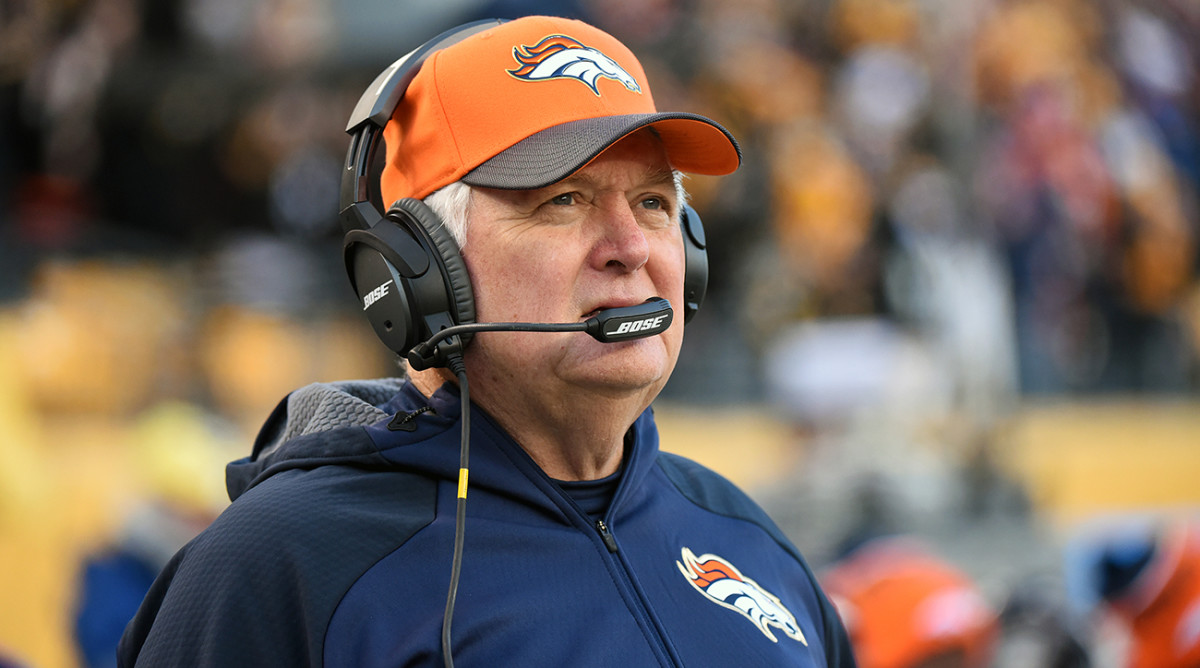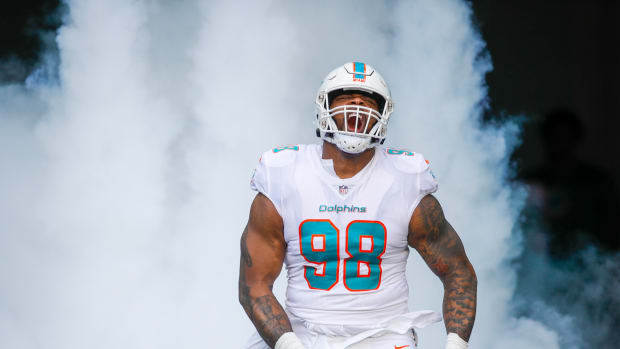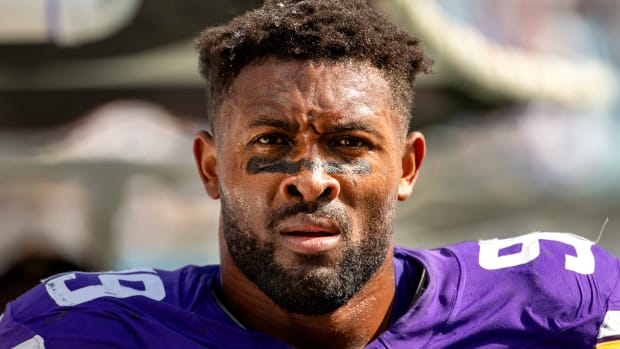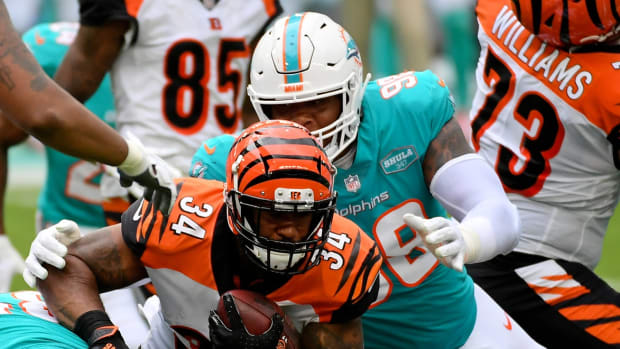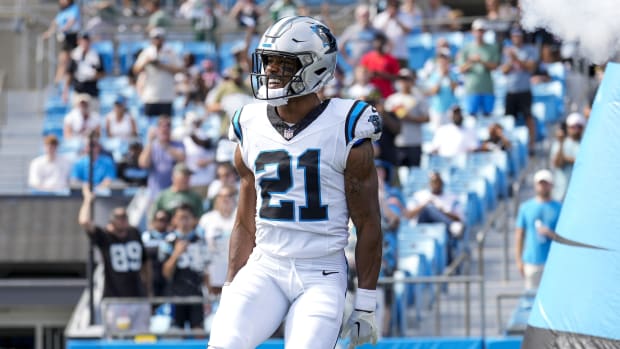Why couldn't Wade Phillips find work the year before he built a Super Bowl-winning defense?
The following is excerpted from Son of Bum: Lessons My Dad Taught Me About Football and Life by Wade Phillips Copyright © 2017. Reprinted with permission of Diversion Books. All rights reserved.
I couldn’t believe that I was going to spend an entire offseason without working for an NFL team, but that was what happened in 2014 after the Texans fired me. I’m not sure what was keeping me from being hired, although my age of sixty-seven probably didn’t help. I also had a year left on my contract at a pretty big salary. Late in my second season with the Texans, Tampa Bay wanted to talk to me about its head coaching job when we were in the playoffs. Bob McNair, our team owner, said to me, “You know, I’d rather you not do that, because of the playoffs and so forth.” So I didn’t talk with the Buccaneers.
It probably would have been my last shot at getting a head coaching job. However, Mr. McNair did come back and give me a new deal that made me the highest-paid assistant in the league. It was nice of him to do that. It was a reward for turning around a defense that went from thirtieth in the NFL to second in our first year and then ranked seventh in each of the next two seasons. But when other teams heard about my salary after I got fired, they said, “You know, we can’t pay you what you were making in Houston.”
Buy Now
Son of Bum
by Wade Phillips
Wade Phillips recalls his life in football, and the lessons learned and memories of his father, NFL head coach Bum Phillips.
After the 2014 season, a few assistant coaches had called to say if they got a head coaching job, they’d like to have me as their defensive coordinator. Tony Sparano had been the interim head coach in Oakland and thought the Raiders would hire him. Pat Shurmur, who had been the offensive coordinator in Philadelphia after two years as head coach in Cleveland, had another shot at a head coaching position. Frank Reich, who was the offensive coordinator in San Diego, also called me. He thought he had a chance with the Jets or Buffalo. All three of those guys had interviews, but none of them were hired.
I felt my record spoke for itself. I had consistently coached very good defensive teams. Beginning in 2005 with the Bills, I went to the playoffs in my first year with six teams in a row. I thought real football people around the league would recognize those accomplishments. I thought everything was going to be okay. It wasn’t. The 2015 offseason began and I was still out of work.
Finally, I got a call to interview with the Washington Redskins. Jay Gruden, their head coach, had fired his defensive coordinator, Jim Haslett, and wanted to talk with me about the job. By this point my son Wes was the Redskins’ tight ends coach, so I was looking forward to the possibility of us working together again. But my interview with Jay was strange, to say the least. I’d had unusual interviews before—like the one with Marty Schottenheimer that took forever because he asked a million questions about the 3–4 defense—but I had never gone through something quite like this.
When Jay was the offensive coordinator in Cincinnati and I was with the Texans, I faced the Bengals twice in the playoffs, after the 2011 and 2012 seasons, and beat them both times—31–10 and 19–13. I felt he knew my credentials and might have been impressed with the things we were able to do in the previous three games in which we had beaten the Bengals, including one game during the regular season.
We watched a lot of tape of the Texans’ games versus his offense. It seemed to me a lot of the plays were of when Cincinnati did well. Most of the interview was about that. I thought we should have talked more about philosophy, technique, concepts, and my record, but he was the one interviewing me.
After the interview I told Wes of my disappointment. I felt Jay didn’t have as much regard for my coaching as I’d hoped he would. He ended up hiring Joe Barry, a friend of his, to be defensive coordinator. Joe had been with the Chargers, whose defensive coordinator was John Pagano. John had been my linebackers coach when I was the defensive coordinator in San Diego, so Joe basically learned my defensive system through John.
Although I didn’t get the job, I was happy for Joe because I think he’s a good, young coach. Of course, the main reason I had even considered going to Washington was for the chance to work with my son again. But I know Wes has enjoyed working with Jay, and they’ve done a good job with the Redskins.
NFL Power Rankings: Which teams improved the most this off-season?
Meanwhile, the Broncos hired Gary Kubiak to replace John Fox as their head coach. They were trying to get Vance Joseph to be their defensive coordinator. He was the secondary coach for the Bengals and he’d had the same job when I was with the Texans. But Mike Brown, the Bengals’ owner, wouldn’t let Vance out of his contract. (After spending the 2016 season as defensive coordinator for the Dolphins, Vance would become the Broncos’ head coach in 2017 as the replacement for Gary, who decided to retire.) After that, the Broncos called me, so I was obviously the second choice.
I was disappointed that they thought somebody else would do a better job, especially because I had been with Kub in Houston, but that was the way it was. It’s just like when somebody takes your place after you’re fired, or you take somebody else’s place and you get the job. You do the best you can and you don’t worry about how you got the job. You just make the most of the opportunity. It didn’t make me more determined to succeed. It didn’t make me want to try harder—if you’re not already doing the best you can, you shouldn’t be in it. If you don’t love it enough to deal with the fact that you’re always in danger of being fired or that you’re going to be passed over for jobs, you shouldn’t be in it.
































